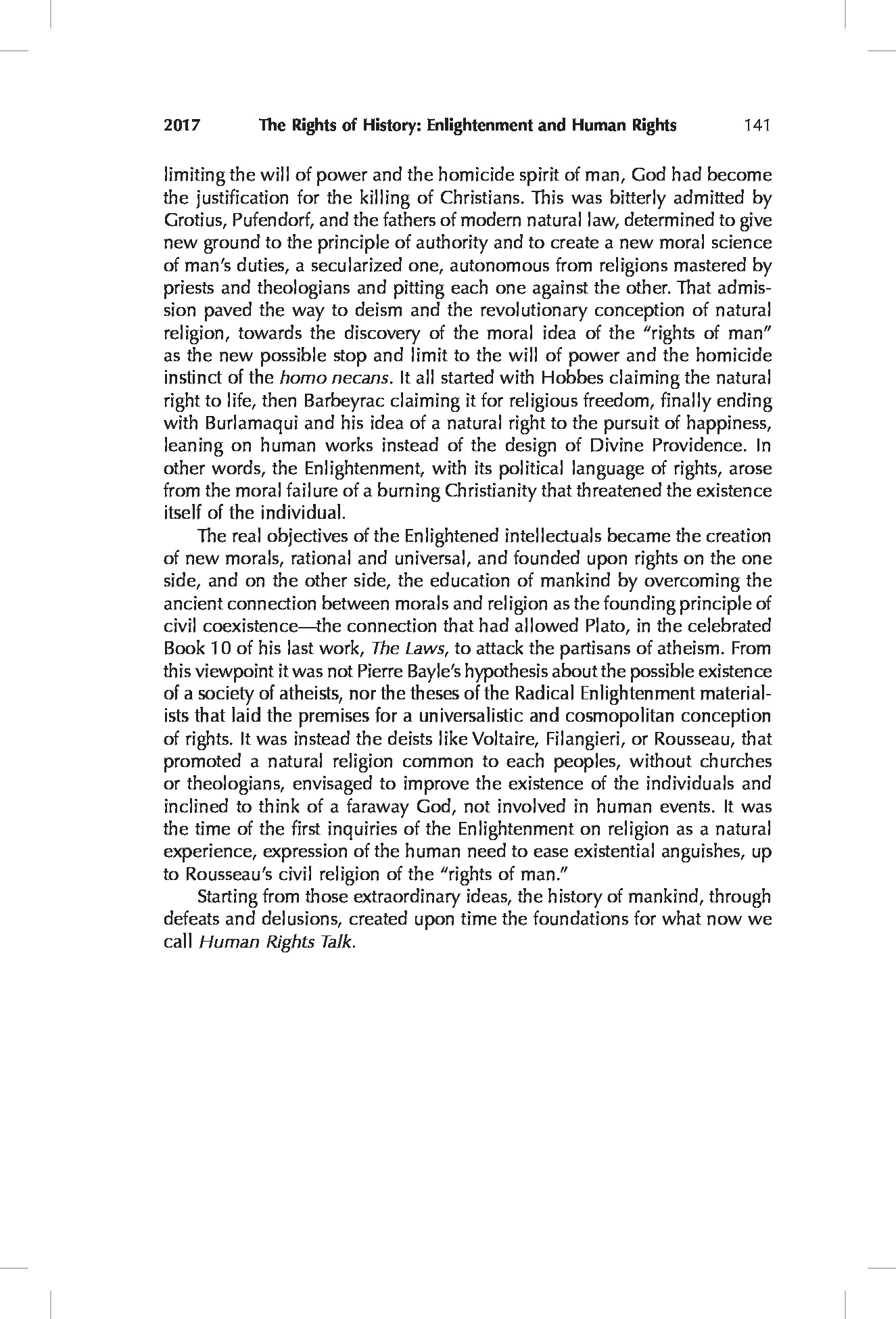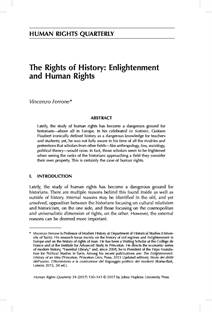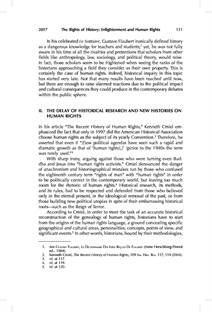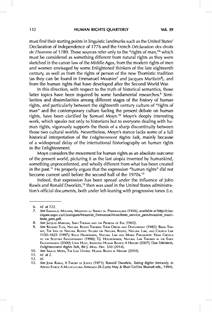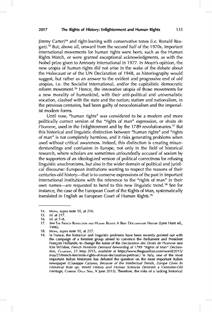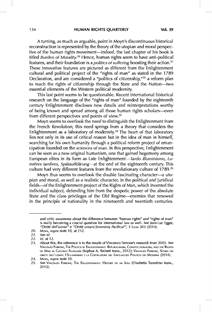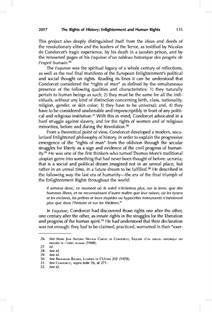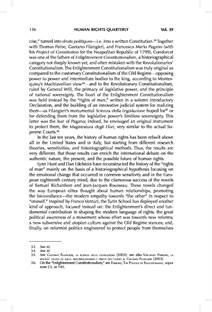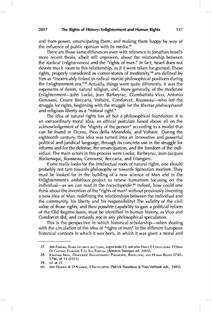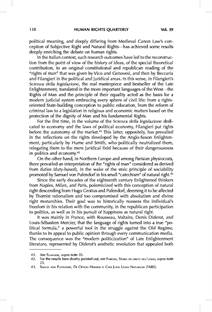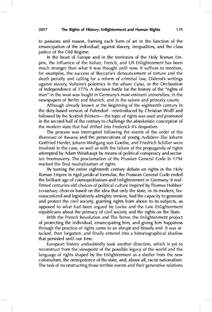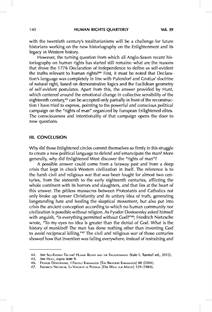2017
The Rights of History: Enlightenment and Human Rights
141
limiting the will of power and the homicide spirit of man, God had become
the justification for the killing of Christians. This was bitterly admitted by
Grotius, Pufendorf, and the fathers of modern natural law, determined to give
new ground to the principle of authority and to create a new moral science
of man’s duties, a secularized one, autonomous from religions mastered by
priests and theologians and pitting each one against the other. That admis-
sion paved the way to deism and the revolutionary conception of natural
religion, towards the discovery of the moral idea of the “rights of man”
as the new possible stop and limit to the will of power and the homicide
instinct of the homo necans. It all started with Hobbes claiming the natural
right to life, then Barbeyrac claiming it for religious freedom, finally ending
with Burlamaqui and his idea of a natural right to the pursuit of happiness,
leaning on human works instead of the design of Divine Providence. In
other words, the Enlightenment, with its political language of rights, arose
from the moral failure of a burning Christianity that threatened the existence
itself of the individual.
The real objectives of the Enlightened intellectuals became the creation
of new morals, rational and universal, and founded upon rights on the one
side, and on the other side, the education of mankind by overcoming the
ancient connection between morals and religion as the founding principle of
civil coexistence—the connection that had allowed Plato, in the celebrated
Book 10 of his last work, The Laws, to attack the partisans of atheism. From
this viewpoint it was not Pierre Bayle’s hypothesis about the possible existence
of a society of atheists, nor the theses of the Radical Enlightenment material-
ists that laid the premises for a universalistic and cosmopolitan conception
of rights. It was instead the deists like Voltaire, Filangieri, or Rousseau, that
promoted a natural religion common to each peoples, without churches
or theologians, envisaged to improve the existence of the individuals and
inclined to think of a faraway God, not involved in human events. It was
the time of the first inquiries of the Enlightenment on religion as a natural
experience, expression of the human need to ease existential anguishes, up
to Rousseau’s civil religion of the “rights of man.”
Starting from those extraordinary ideas, the history of mankind, through
defeats and delusions, created upon time the foundations for what now we
call Human Rights Talk.
Dettagli
- Page N°:12
- Publication:
- Author:Vincenzo Ferrone

